The technical webinar “Coordinating local and national actions to reduce food loss and waste in Mediterranean cities,” organized by the SFS-MED Platform as part of the Food is Never Waste Coalition, was one of a series of technical webinars initiated in 2022. These webinars focused on topics crucial to achieving a sustainable food systems transformation in the Mediterranean region. The primary goal of the series was to utilize the extensive knowledge and expertise of the SFS-MED network, which comprises researchers, development practitioners, and decision-makers.
The SFS-MED Platform has achieved positive results from 2020 to 2024, including dialogues within the UN Food Systems Summit and the World Conference on the Mediterranean Diet, the network has reached up to 3500 contacts across 98 countries, and our joint effort with FAO to support food security and sustainable development has been recognized by the UfM and CIHEAM Member Countries during the recent Ministerial events.
The Mediterranean region faces a significant challenge with Food Loss and Waste (FLW), threatening global food security and environmental sustainability. With over 70 percent of the region’s population living in urban areas – a figure expected to grow in the coming decades, cities are major food consumers and waste generators, but they can also innovate and create systemic change. Reducing and repurposing food waste benefits the environment, society, and the economy and contributes to the transition towards sustainable food systems.
In 2022, the European Union recorded 59 million tons of fresh food lost or wasted, averaging 132 kilograms per person, with households accounting for 54% of this total (71 kilograms per person). By comparison, this figure is lower in Eastern Europe, with an average of 53 kilograms per person at household level, and considerably higher in the Near East and North Africa region, with food waste at household levels averaging 114 kilograms per capita annually.
To achieve these benefits, we need coordinated action and multi-stakeholder collaboration, including municipalities, civil society, research networks, and national governments. The SFS-MED Platform provides a crucial space for this collaboration.
Recent studies and events emphasized the importance of multiple stakeholders in addressing food loss and waste: Municipalities are directly implementing sustainable food governance and waste reduction initiatives, often collaborating with international organizations. Civil society organizations are taking the lead in promoting sustainability and reducing food loss in the restaurant industry and agricultural sector. Research networks are essential for facilitating knowledge exchange and collaboration between cities to prevent food loss and waste. National governments play a crucial role by establishing supportive frameworks and providing legislative and financial incentives to drive waste reduction strategies at the city level and within the private sector.
The loss of human resources and knowledge, particularly traditional farming practices and local wisdom passed down through generations, poses a significant barrier to sustainable development. Additionally, it is crucial to emphasize that food loss and waste represent a squandering of vital natural resources, including water, land, and energy, which are essential for food production and overall environmental well-being.
Food Loss and Waste (FLW) occurs throughout the food supply chain and requires multifaceted solutions such as infrastructure, technology, and training to reduce it. Cities are major contributors to FLW, and tackling this issue demands a holistic approach encompassing the entire urban food system.
Transitioning to a circular economy model is essential, where food waste is repurposed into valuable resources, promoting sustainability and job creation. Additionally, scientific research, innovation, and education are pivotal in driving the transformation towards sustainable food systems and reducing FLW.
We must move beyond blaming consumers solely and recognize the shared (distributed) responsibility among all stakeholders, including retailers. Addressing food waste necessitates a broader discourse on sustainable consumption.
Taking immediate action is imperative, as reducing food loss and waste is fundamental for achieving sustainable food systems and ensuring food security for all. Public Food Procurement programs play a significant role in supporting local producers, promoting sustainable agriculture, and enhancing nutrition in public institutions. Cities are crucial in implementing policies that foster sustainable food consumption and minimize waste, and their initiatives must be integrated into national and global strategies. Therefore, cities need to be empowered with the necessary tools and authority to effect meaningful change.
The SFS-MED platform is a vital tool for fostering regional collaboration and formulating effective strategies to combat food loss and waste. Our continued engagement in initiatives like the Food is Never Waste coalition is essential for achieving broader sustainability objectives. As previously highlighted, education is key to shifting consumer behavior, particularly among younger generations. Together with simple and practical solutions, we would be able to produce substantial impacts in reducing household waste.
CIHEAM reaffirms its commitment to supporting the SFS-MED Platform and its Coordination Desk, in line with the novel 2030 strategic vision on sustainable food systems. We will maintain close collaboration with FAO, UfM, and PRIMA, while expanding our partnerships to encompass other countries, organizations, and the private sector.
A successful and sustainable food system hinges on a network of interconnected stakeholders, collaborating across multiple levels and perspectives to build a shared understanding of the intricate dynamics within the food system itself. This collaborative approach fosters a holistic view, enabling the development of comprehensive and effective solutions to address the complexities of food sustainability.











